News & Commentary
Please email media@wildlifeforall.us with press inquiries.
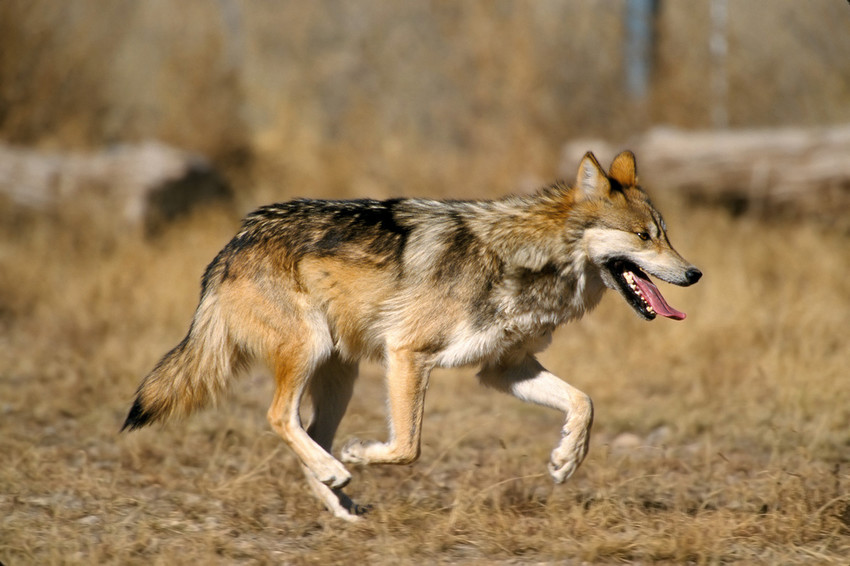
Bill Would Remove Federal Protections From Endangered Mexican Gray Wolves
Conservation groups have spoken out against a proposed bill which would remove ESA protections from Mexican gray wolves, a species imperiled by low genetic diversity.
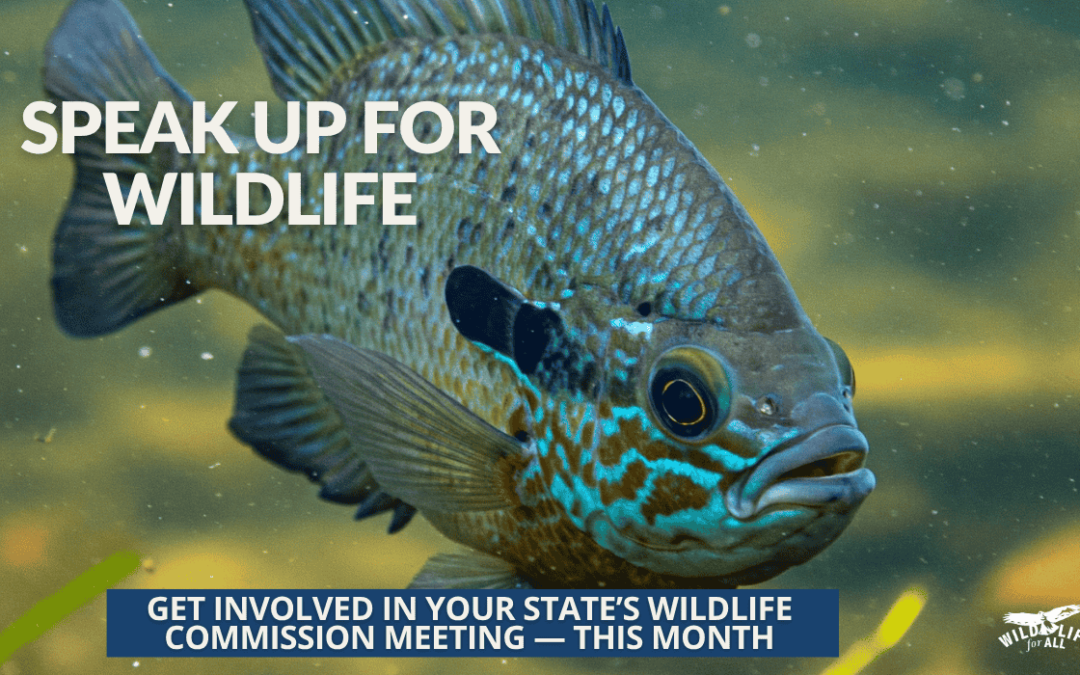
July Wildlife Commission Meetings
Get involved in your state’s wildlife governance! Here is a list of all the states with July wildlife commission meetings, listed from first to last by date, with as much information as we can find on each one.
Who Really Speaks For Wildlife? Michelle Lute on the CSU Animal-Human Policy Center Podcast
Michelle dives into the history—and the harm—of the so-called North American Model of Wildlife Conservation. What began as a description of early Euro-American conservation has been warped into a prescription for how we manage wildlife today: one that leaves out Indigenous knowledge, future generations, non-consumptive values, and even wildlife themselves.
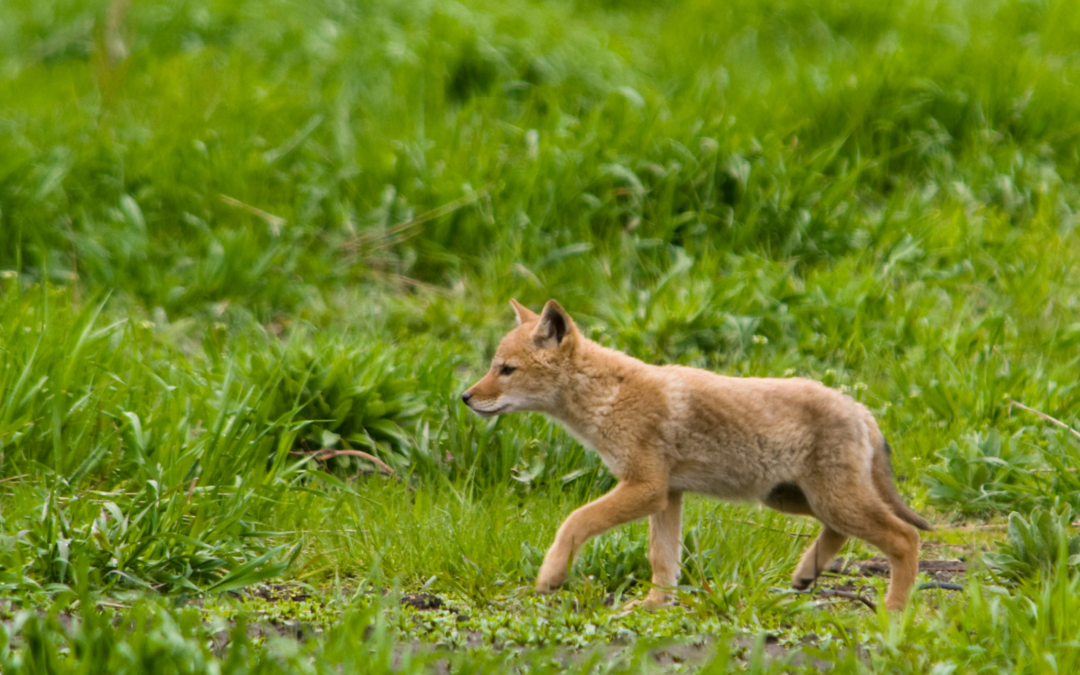
Court Upholds Michigan’s Shortened Coyote Season
On June 3, 2025, an Ingham County judge ruled in favor of closing coyote hunting in Michigan during a three-month period while mother coyotes are nursing and raising pups. The debate over this issue reveals the importance of public advocacy in state wildlife management.
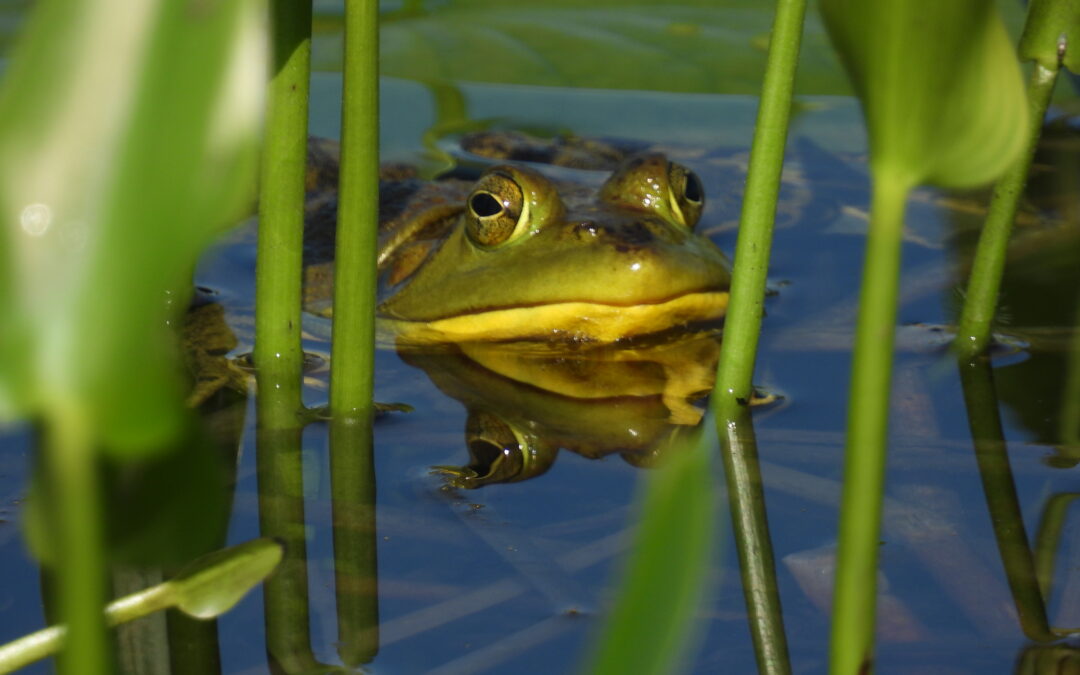
Vermont Protects Amphibians and Reptiles
Vermont extends protections to amphibians and reptiles, signaling a growing recognition that all wildlife deserve protection.
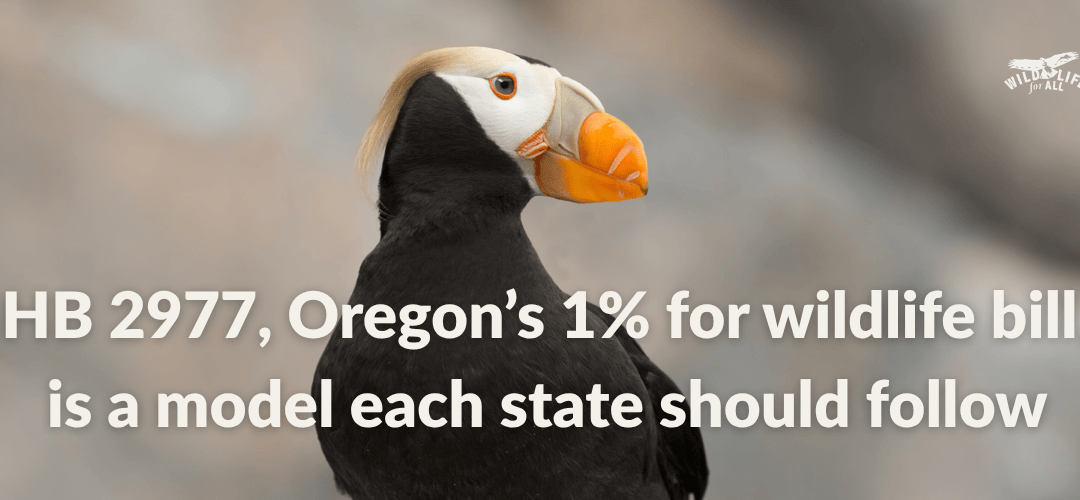
Oregon’s HB 2977 Is Model Funding Reform
Oregon’s HB 2977—the “1% for Wildlife” bill—isn’t just a funding fix. It’s an urgent governance reform bill that every state should mirror.
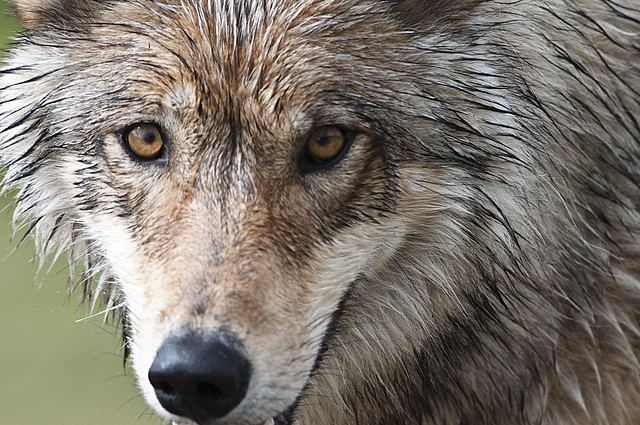
Wolf Pups Bring Hope — But Colorado’s Wolves Are Still in Crisis
Wolf pups have been spotted again in Colorado, which brings much-needed hope to the crisis Colorado’s wolves face.

June Wildlife Commission Meetings
Get involved in your state’s wildlife governance! Here is a list of all the states with June wildlife commission meetings, listed from first to last by date, with as much information as we can find on each one.

CPW Commission: The Settlement Isn’t The Story
Colorado Parks and Wildlife (CPW) Commission settlement isn’t the story; the double standard of how wildlife advocates are treated is.

Wildlife Management Reform to Keep Wildlife Out of the “Emergency Room”
Wildlife for All’s Michelle Lute explains to Stateline why wildlife management reform is critical as states face 21st-century challenges.

Stateline Interviews Wildlife for All About Role in Passing SB5
New article alert: Stateline Interviews Wildlife for All About Role in Passing SB5 Stateline Interviews Wildlife for All About Role in Passing SB5 We’re proud to share that Wildlife for All was featured in a recent syndicated article by Stateline, “As states rethink...

Reimagining Wildlife Management: Centering Values Beyond the Status Quo
Wildlife management decisions are heavily driven by values. Current dominant paradigms emphasize managing specific species to maximize recreational opportunities and other uses to humans. What might a holistic, ecological approach look like?

New Mexico Passes Historic Reform Bill SB5
SB5 reforms New Mexico’s wildlife governance—marking a landmark win for biodiversity, ecosystems, and public representation.

Michigan NRC decision gives coyotes a reprieve
On May 8, 2025, Michigan's Natural Resources Commission reaffirmed their decision to protect coyotes who are denning and raising young pups. Back in March 2024, the commission voted 4-2 to shorten the coyote hunting season from year-round to nine months, reversing a...

New “Military Defense Zones” Endanger Wildlife and Democracy
From border wall to occupied wildlands: why the new “military defense zones” endanger wildlife and democracy.

Protect Monarchs—and the Endangered Species Act Itself
Take two actions: comment to protect monarch butterflies as endangered by Monday, May 19, and to protect the Endangered Species Act itself.

Why All Species Matter: Longfin Delta Smelt
The longfin delta smelt is currently the target of dangerous Congressional effort to strip its Endangered Species Act safeguards even though they still deserve protection.

Protect the Endangered Species Act
Urgent action is needed to protect the Endangered Species Act from the Trump administration’s attempt to change the definition of “harm,” which threatens the core of this law and the wildlife that depend on it.

Take Action for Grizzlies Before It’s Too Late
Take action for grizzlies to protect one of North America’s most iconic and threatened species in honor of Endangered Species Day—before it’s too late. Comments are due at 11:59 p.m. ET May 16.

NSPM-4: The Border Wall Was Just the Beginning
A new federal militarized zone on the New Mexico border, NSPM-4, threatens endangered species, Indigenous lands, and the human rights of migrants seeking safety, endangering both ecosystems and democracy.

May Wildlife Commission Meetings
Get involved in your state’s wildlife governance! Here is a list of all the states with May wildlife commission meetings, listed from first to last by date, with as much information as we can find on each one.

When Journalism Stops Seeking Truth
The Mountain Daily Star covered our Arizona petition in a story that was not journalism—it was a one-sided defense of the status quo.

No, Dire Wolves Are Not Back
Dire wolves may be extinct, but today’s wolves are still here—real, wild, and worth fighting for. Let’s stop the distracting fantasies and start advocating for the living beings and wild places that need us now.

Why Arizona Game and Fish Needs Reform
Why Arizona Game and Fish Needs Reform Preordained and Denied: Arizona Fish and Game Commission Rejects Calls to End Hounding Yesterday, the Arizona Game and Fish Commission held its long-awaited meeting to consider our petition to ban the use of hounds in the hunting...

Disappointment in Arizona: Commission Rejects Petition to End Hounding
Despite powerful testimony, compelling evidence, and widespread public support, the Arizona Game and Fish Commission today voted to reject a petition that would have initiated a rulemaking process to ban the controversial practice of wildlife hounding.

April Wildlife Commission Meetings
Here is a list of all the states with April wildlife commission meetings, listed from first to last by date.

LoboWeek 2025 Is A Call To Action
LoboWeek2025 offers an opportunity to celebrate and advocate for one of the most endangered mammals in North America: the Mexican gray wolf.

Coyote Awareness Week: Challenging Fear, Embracing Coexistence
Coyotes are one of the most persecuted wild animals in North America. Celebrate Coyote Awareness Week to change the conversation.

When Beavers Do It Better
Beavers aren’t just dam-builders; they’re ecosystem engineers who create wetlands, sequester carbon, and enhance biodiversity. Yet in North America, they’re often trapped and killed as nuisances.

Arizonans Rally Against Hounding—and HB 2552
More than 50 Arizonans rally against hounding in a webinar to support a rulemaking petition to end hound hunting of wildlife in the state.

End Hound Hunting In Arizona
End hound hunting in Arizona to protect wildlife. Arizona’s Game & Fish Department has a legal duty to protect the state’s wildlife.

New Mexico Reform Bill SB 5 Passes the Senate
Groundbreaking New Mexico wildlife governance reform bill SB 5 passes the Senate and now moves onward to the House.

March Wildlife Commission Meetings
Here is a list of all the states with March wildlife commission meetings, listed from first to last by date.

Arizona Officials Back Bill to Undermine Wildlife Protections, Silence Public
After Wildlife for All and partners submitted a petition to the AZ Game & Fish Commission, Arizona officials wrote a bill to stop our work.

Right to Hunt Amendments: a Solution in Search of a Problem
Right to Hunt amendments are a solution in search of a problem. Why Right to Hunt constitutional amendments are a solution in search of a problem Lately, we’ve been talking a lot about the power of language and the ways in which entrenched hunting interests manipulate...

Why Words Matter in Wildlife Management
Words matter in wildlife management. Many terms used in wildlife management reinforce outdated, harmful, and even violent narratives.

The Truth About Wildlife Killing Contests
Wildlife killing contests are nothing more than bloodsport disguised as “tradition,” “predator control,” or “wildlife management.”
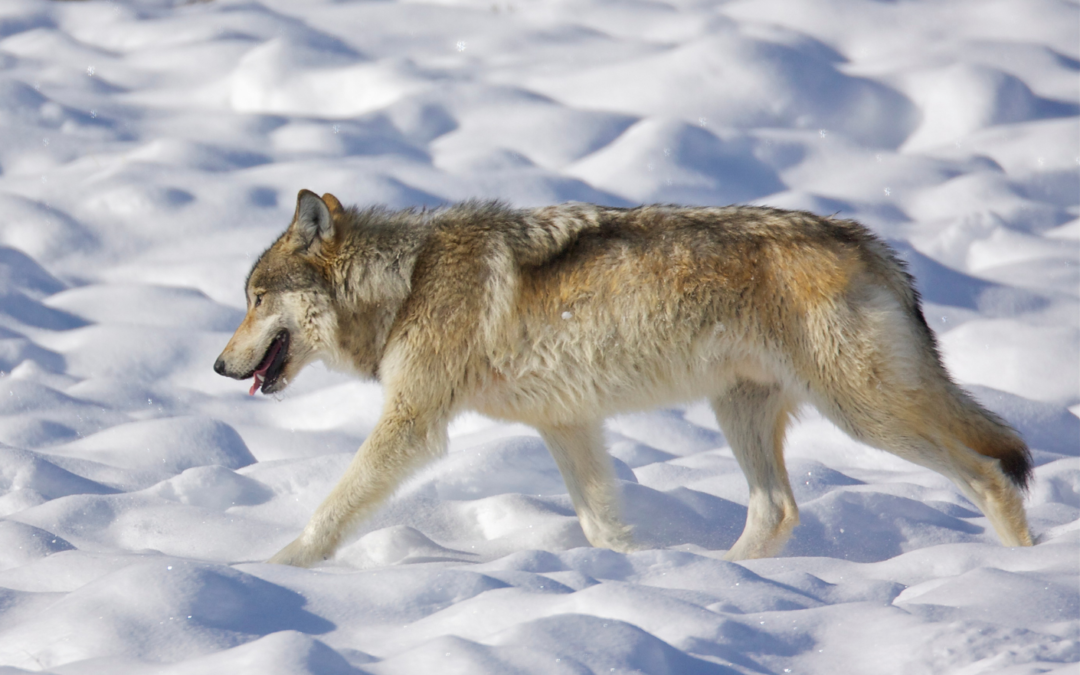
What Happens When Science Takes a Backseat to Politics?
What happens when science takes a backseat to politics? Why do political biases so often determine which species live and which die?

A Small Group Can Change the World Because We Must
Never doubt that a small group can change the world, because we must. History shows that when we stand up, we can change our course.
The Wildlife Wire: Mandy Culbertson
Wildlife for All Communications Director Mandy Culbertson had the chance to discuss how language is used to normalize harm to wildlife in depth on the Wildlife Wire podcast with Mark Surls and Samantha Miller of the Colorado Wildlife Alliance. Listen to Podcast ►

Changing the Narrative to Change the Future
Changing the narrative is crucial to build the world we want to live in. To change conversations, we have to change the narrative.

Black History Month is a Call to Action
Black History Month reminds us: our fight must be intersectional, or it isn’t justice at all. Wildlife advocacy must include justice for all.

Celebrating Kevin Bixby
Celebrating Kevin Bixby: After decades of tireless work to protect wildlife and wildlands, Kevin Bixby is retiring—leaving behind an incredible legacy of advocacy, courage, and leadership.

February Wildlife Commission Meetings
Here is a list of all the states with February wildlife commission meetings, listed from first to last by date.

Pass the New Mexico Green Amendment
The New Mexico Green Amendment would establish constitutional protections for environmental rights like free speech and equal protection.

Nevada Wildlife Commission rejects petition to protect mountain lions
The Nevada Wildlife Commission rejected a petition to protect mountain lions by reforming trapping regulations in their January 24 meeting.

New Mexico Wildlife Reform Bill Introduced
A New Mexico wildlife reform bill introduced today offers a comprehensive, three-pronged approach to modernize wildlife management and protect New Mexico’s rich biodiversity.

Wildlife Commissioners Who Stand For Wildlife Become Targets
When wildlife commissioners stand for true wildlife conservation, they become targets of the pro-trophy hunting lobby.

Make Nuisance Trapping in California More Humane
Tell the California Wildlife Resources Committee at their meeting on January 15: make nuisance trapping in California more humane.

Prevent Bobcat Trapping in Indiana
We need your voice to prevent bobcat trapping in Indiana; speak up at a critical public hearing on January 16th.

30th Anniversary of Wolf Reintroduction: Changing the Narrative
Today, January 12, marks the 30th anniversary of the reintroduction of wolves to Yellowstone National Park and central Idaho, of a monumental moment in conservation history.

Grizzly Bears Stay Protected – For Now
A significant development for wildlife: grizzly bears stay protected. USFWS declined to remove grizzly bears from the Endangered Species Act.

WDFW Escalates War on Wolves with Columbia Pack Decision
WDFW escalates war on wolves with yesterday’s lethal removal decision targeting the Columbia Pack wolves in an increasingly aggressive stance.

January Wildlife Commission Meetings
It's time to get active in January Wildlife Commission Meetings. January Wildlife Commission Meetings Welcome to 2025, wildlife advocates! As we start this new year, let's kick it off with activism. Wildlife commission meetings are critical opportunities to influence...

USFWS Investigating Illegal Killing of Copper Creek Male
Yesterday, the U.S. Fish and Wildlife Service (USFWS) announced they are investigating the illegal killing of a gray wolf in Grand County.

Missouri Man Illegally Killed a Mountain Lion
In November, a Missouri man illegally shot and killed a mountain lion that had traveled more than 400 miles.

Colorado Wildlife Commission January Action Alert
A baseless lawsuit is targeting the Colorado Wildlife Commission as a whole and two commissioners individually. Take action!

End the Incidental Trapping of Nevada’s Mountain Lions
End the incidental trapping of Nevada’s mountain lions. Incidental trapping harms one of every six or seven mountain lions in Nevada.

SCB Webinar Series on State Wildlife Governance Reform
Society for Conservation Biology announces webinar series on state wildlife governance reform For years, many of us in this field have talked about the need for wildlife governance reform. We’ve called for more inclusive decision-making processes, more attention to...

Wildlife Crossings: A No-Brainer
Wildlife crossings are a no-brainer for coexistence. No animal should die in a car accident when it could be saved by a wildlife crossing.

Conservation of What, Management for Whom
The stakes for wildlife have never been higher. We’re forced to confront a critical question: Conservation of what, and management for whom?

Wildlife for All Welcomes New Board Member Kavya Parsa
Wildlife for All, a national nonprofit dedicated to transforming wildlife management to be more inclusive, compassionate, and ecologically driven, is thrilled to announce that Kavya Parsa has joined its Board of Directors.

Take action at the 12/6 Arizona Wildlife Commission meeting
We need your voice at the Arizona Wildlife Commission meeting on December 6 to protect Arizona’s wildlife and public lands.

Ban Dog Pack Hunting in Arizona
Wildlife for All Cosigns Petition to Ban Dog Pack Hunting in Arizona SANTA FE, N.M.—Wildlife for All is proud to join conservation groups in petitioning the Arizona Game and Fish Commission to ban the use of dog packs in hunting wildlife including mountain lions and...

East Slope Mountain Lion Discussion Reveals Hunting Is Unnecessary
On Friday, debate at the Colorado Parks and Wildlife Commission meeting on the East Slope Mountain Lion Management Plan, heard a former employee that led the state’s mountain lion program for years admit that hunting mountain lions isn’t necessary.
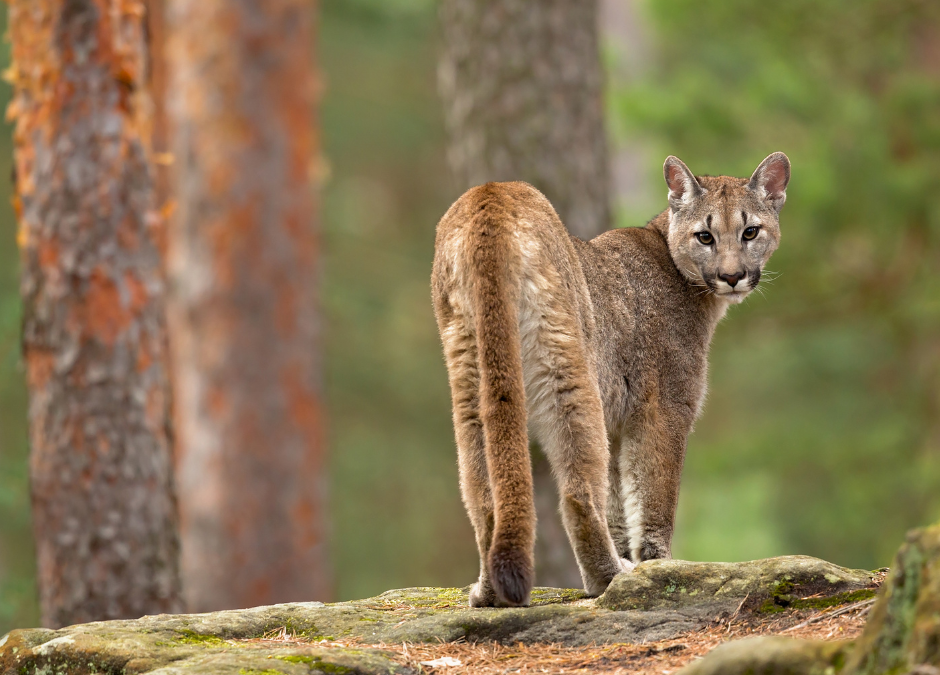
Action Alert: CPW Commission Meeting Nov. 14-15
Trophy hunting groups are targeting Colorado Parks and Wildlife (CPW) commissioners who supported Prop 127; pack the room to show support!

Florida Amendment 2 Passes, A Backward Step For Wildlife
Wildlife for All statement on Florida voters approving Amendment 2, a constitutional amendment affirming hunting and fishing as protected rights.

Colorado Prop 127 Fails To Ban Trophy Hunting Amidst Misinformation Campaign
Statement from Wildlife for All in response to Colorado Prop 127 failing to pass, a ballot initiative to end mountain lion and bobcat hunting in the state.

Hunting is Not a Constitutional Right: Florida Amendment 2
Beneath the guise of “protecting” rights, Florida Amendment 2 would further entrench the inherently undemocratic nature of wildlife management.

Hunting Wild Cats Is Trophy Hunting
Colorado’s Prop 127 would end mountain lion trophy hunting. Animals that are trophy hunted are not hunted for food, but for entertainment.

Reforming Wildlife Management: Case Studies Reveal Systemic Issues
Recent cases of fraudulent actions by guides and hunters have brought to light deeper systemic issues in wildlife management.

Debunking The “Ballot Box Biology” Myth
The term “ballot box biology” is a myth trophy hunting groups use to maintain their outsized power and influence over wildlife policy.

What Does Noninvasive Animal Research Look Like?
Here in the United States, wildlife management has long prioritized consumptive uses like hunting, trapping, and fishing. When animals are studied, it’s typically with this lens and they are often captured using hunting and trapping techniques. Researchers at agencies...

Valuing Animals As Individuals
Valuing animals as individuals is essential because each animal has intrinsic worth — including unique experiences and emotions— and a vital role within their ecosystem. Individual-level valuation recognizes the importance of compassion and ethical treatment of...

Who Is The Anti-Wolf Lobby?
Journalists in Utah have revealed that an anti-wolf lobby group fraudulently misused public tax dollars to fund its activities, highlighting the entrenched power and corruption of the anti-carnivore lobbyists within state wildlife management.

The ESA Is The Floor, Not The Ceiling
The ESA is the floor, not the ceiling. It can’t bring wolves back to full species recovery, and we can’t rely on its protections forever.

The Power of People Who Care
We know fighting for change in environmental and wildlife issues can feel overwhelming, but people who care really can make a difference.

New Mexico Game & Fish Cancels Squirrel Killing Contest
Last week, a Wildlife for All board member, along with other concerned citizens in New Mexico, helped to stop a squirrel killing contest.
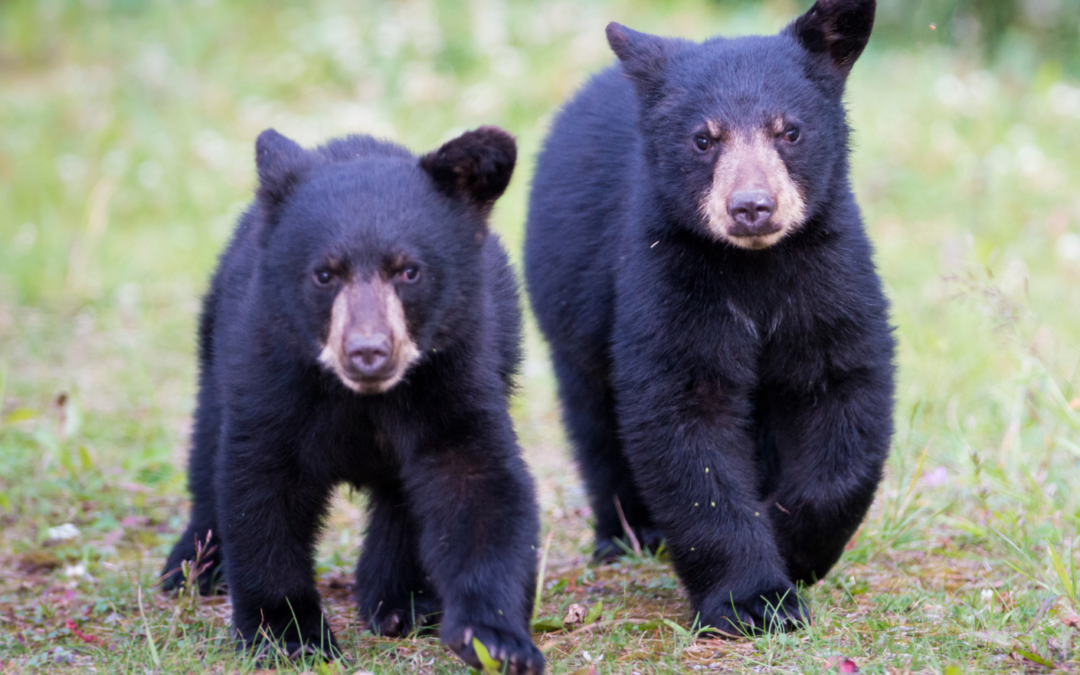
Florida Wildlife Federation joins growing list of opponents to Florida “right-to-hunt” ballot initiative
The Florida Wildlife Federation is the latest group—and the first sportsmen’s organization—to announce its opposition to the so-called “Right to Hunt” amendment on the November ballot in Florida.

Rolling Stone: Inside the Growing and Controversial World of Wildlife-Killing Contests
Rolling Stone’s “Inside the Growing and Controversial World of Wildlife-Killing Contests” details the culture war over ethical hunting.
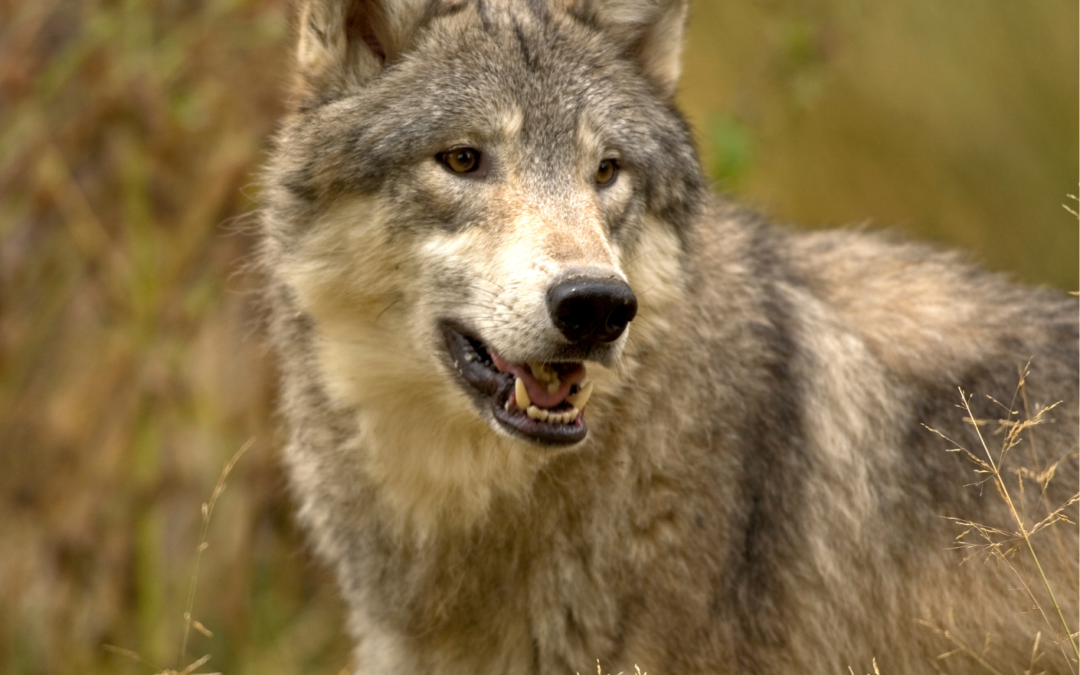
New Survey Reveals Strong Support for Wildlife Policy Reform
A new nationwide survey conducted by Colorado State University and Project Coyote reveals strong support for criminalizing acts of cruelty to wildlife, including practices like running over wolves with snowmobiles.

New Mexico Loses Another Wildlife Commissioner
Friday, the New Mexico Wildlife Federation released news that Edward Garcia resigned from the New Mexico Game Commission effective Aug. 1. While there is no additional information available at this time, the loss of yet another commissioner adds additional weight to...

Committee Fails To Ban Snowmobiling Over Wildlife
A Wyoming State Legislature Committee had the opportunity to address the public’s overwhelming demand to ban snowmobiling over wildlife—but didn’t.

Hunters Need Predators
Recent research on ungulate diseases like CWD calls into question the wisdom of states’ permissive, in some cases unrestricted, hunting and trapping of cougars, wolves, coyotes and bobcats. If the whole of nature is good, no part can be bad. It’s time for all hunters to recognize predators as allies, not competitors.

WDFW Issues Another Wolf Kill Order for Couse Pack
The Washington Department of Fish and Wildlife (WDFW) approved a wolf kill order yesterday for the Couse wolf pack in southeast Washington.
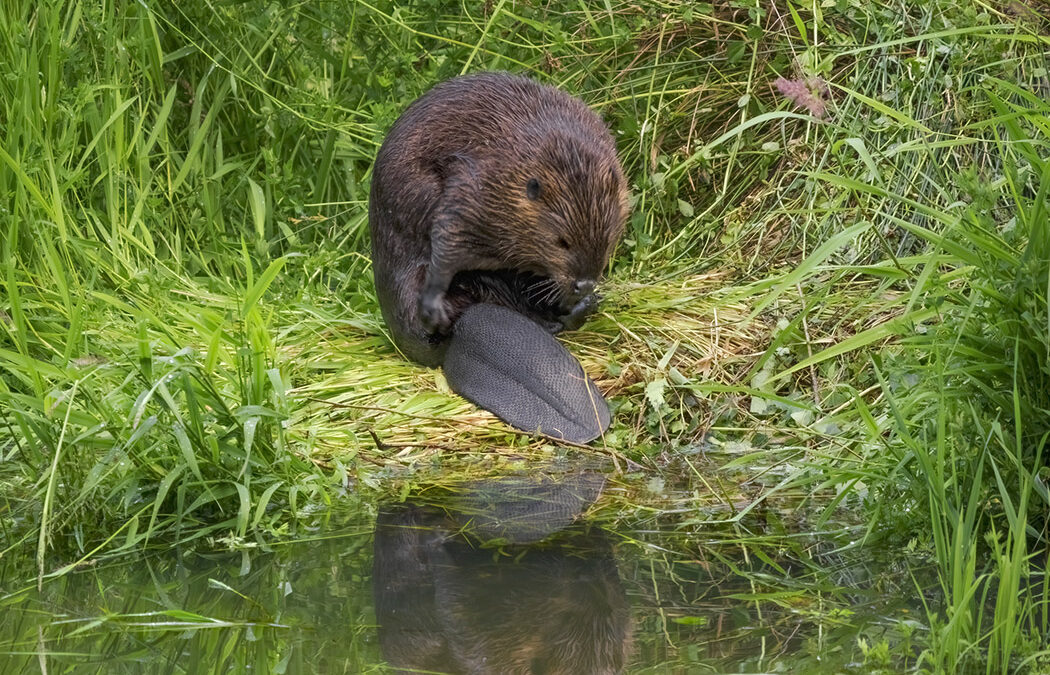
Wild Ground is Common Ground
In a recent op-ed, Will Marlier pushes back against the narrative often repeated in the wildlife management community that interest in hunting is waning because young/urban people are disconnected from nature and too immersed in their screens.

New Study Critiques Misleading Trapping Standards
A groundbreaking peer-reviewed study critically evaluates the methodology that U.S. state wildlife agencies heavily rely on to justify trapping.

Why Florida’s Right to Hunt Amendment is Unnecessary
Wildlife for All has joined with other groups in opposing a so-called “Right to Hunt” ballot initiative in Florida that would tie wildlife managers’ hands and privilege hunters and anglers over the majority of the public. Read more here.

New Mexico’s Green Amendment
A proposed amendment to the state constitution would guarantee New Mexicans the right to healthy environments, ecosystems, and a safe climate. It would also hugely benefit wildlife by acknowledging that native species are to be protected on behalf of future generations as part of the public trust.

The Role of Wildlife Governance in Rewilding
State wildlife agencies are failing to restore and protect wildlife because they prioritize hunting, fishing and trapping over ecological conservation, according to a new study in the journal Bioscience.
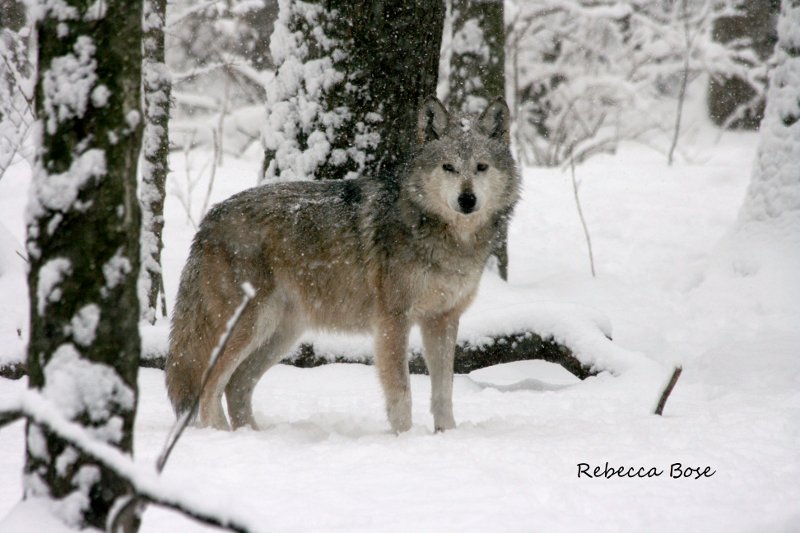
Wyoming Wolf Torture Incident Highlights Need to Drastically Reform State Wildlife Management
Wildlife for All and partners renewed our call for Wyoming and other states to overhaul their wildlife management policies in the wake of an incident of a wolf having been captured and tortured in Wyoming.
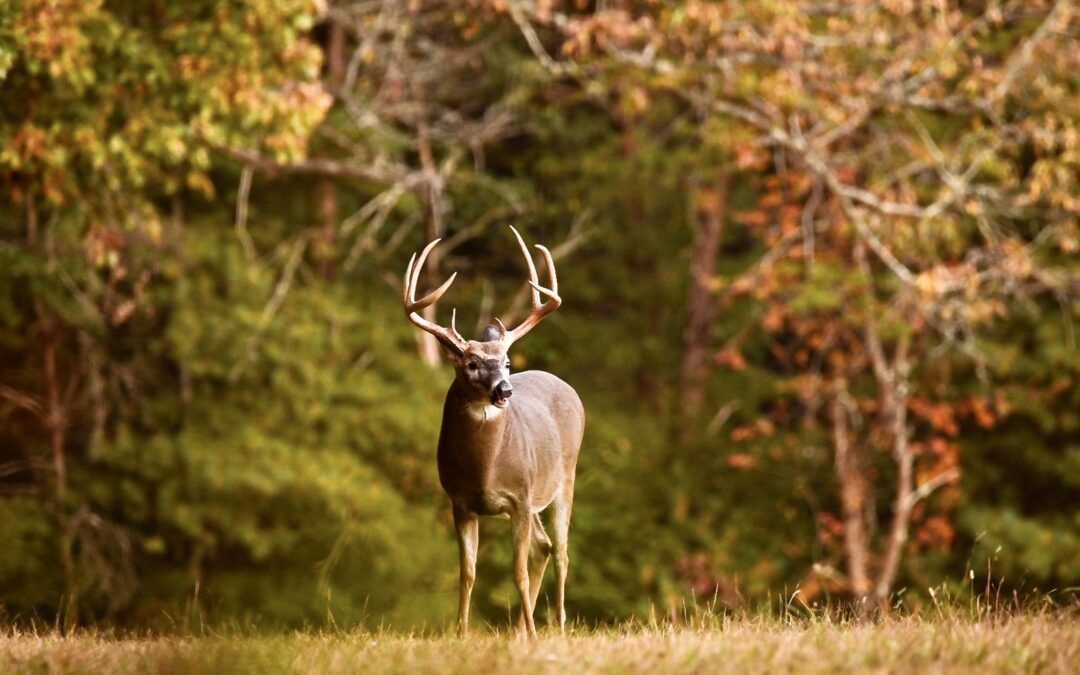
A Proposed VT Bill Would Add Nonhunters to the Fish and Wildlife Board
A bill in Vermont would democratize wildlife policy making by adding nonhunters to the state wildlife board. This NY Times article links it to similar efforts to shake up wildlife management in other states.

Do cougars require killing?
A ballot initiative in Colorado would ban the hunting of cougars. Opponents say it would eliminate an essential management tool. This hunter doesn’t buy it.

For Asha, Let Nature Takes Its Course
In a heartfelt op-ed for the Santa Fe New Mexican, WFA Executive Director Dr. Michelle Lute reflects on the tragic death of Asha, the first Mexican wolf to cross into northern New Mexico in decades.
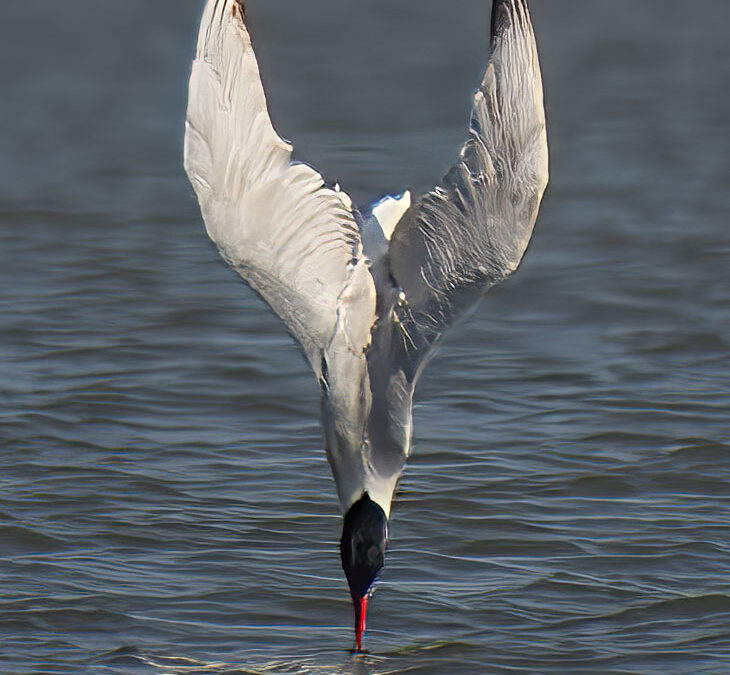
Proposed Washington State Policy Seeks to Define, Prioritize “Conservation”
Although it is found in many state statutes, the term “wildlife conservation” is seldom defined, leading to widespread confusion about the purpose of state wildlife management. One state wildlife commission decided to do something about it. The result was surprisingly controversial.
Read more here.

Lawsuit Challenges NJ Law Giving Hunters Majority on State Fish and Wildlife Council
A former New Jersey state senator filed a lawsuit challenging the constitutionality of a state law that effectively gives hunting groups the power to select a majority of the 11-member NJ Fish and Wildlife Council, which sets wildlife policy for the state. The legal challenge was filed in response to the state’s decision to allow a bear hunt in each of the next five years. The judge denied a preliminary injunction to halt the hunt which began this month.
Read more here.

Stop next week’s bear hunt wildlife conservationists plead
A lawsuit to stop the New Jersey black bear hunt emphasizes the need for modern, science-based solutions that prioritize coexistence and respect for wildlife.
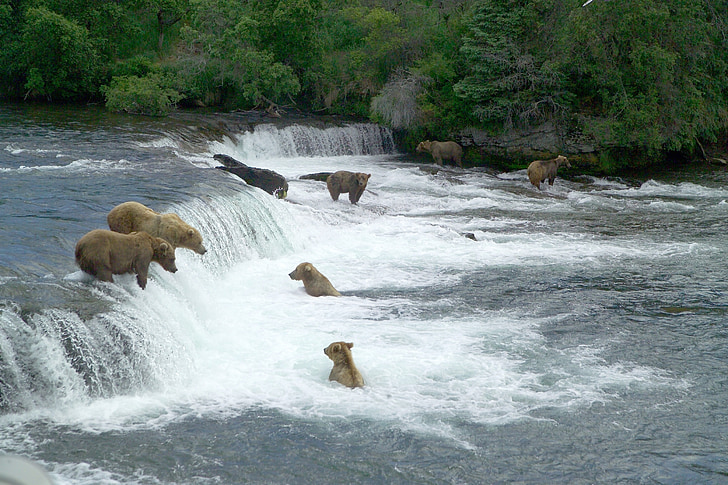
Wildlife for All joins call to end federal funding for state wildlife killing efforts
In response to the state of Alaska killing more than 100 bears and wolves by helicopter in June, supposedly to increase caribou numbers, a coalition of 35 wildlife and Indigenous groups, including Wildlife for All, sent a letter to Secretary of Interior Deb Haaland in August, renewing their demand that federal funds be withheld from states that practice or sanction the killing of native carnivores like wolves.
Read more here.

Wildlife reforms advance in Colorado with Governor Polis’ latest commission appointments
“Facing escalating threats from climate change, habitat destruction and species extinction, Colorado’s rich natural heritage hangs in the balance — but the recent appointment of three new CPW commissioners offers hope for safeguarding wildlife and the outdoors for all,” says one Colorado hunter.
Read more at the Colorado Politics website
Wolf Connection #137: Michelle Lute
Michelle Lute is the Co-Executive Director for Wildlife For All, whose mission is to reform wildlife management in the U.S. to be more democratic, compassionate and focused on protecting wild species and ecosystems. She is a conservation scientist and advocate with...